What is the Prime Directive in Star Trek?
The Prime Directive stands as Starfleet’s highest law, shaped and tested across every Star Trek series through evolving interpretations, ethical dilemmas, and memorable first contact decisions.
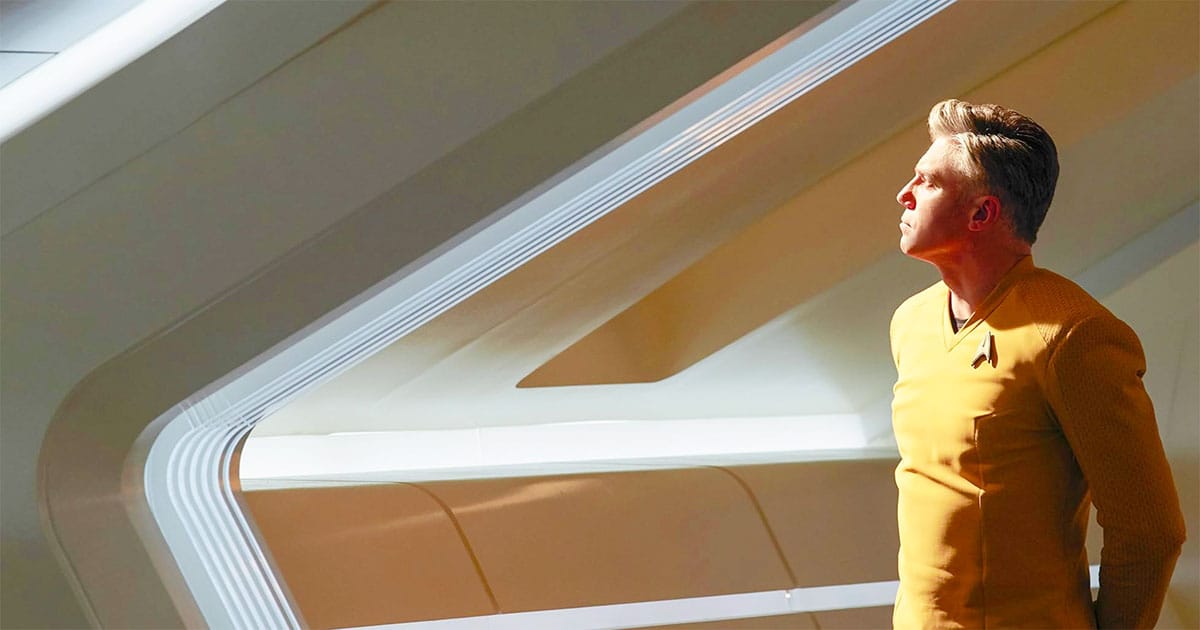
Star Trek's Prime Directive
Overview
The Prime Directive —officially Starfleet General Order 1— is a fundamental guiding principle in the "Star Trek" universe.
The Prime Directive prohibits Starfleet personnel from interfering with the natural social and technological development of alien civilizations.
In essence, Starfleet crews must not reveal themselves or their advanced technology to worlds that are not ready (typically those that have not yet developed faster-than-light warp drive), and they must avoid influencing those societies' progress.
As articulated in one early episode, this means that "No identification of self or mission. No interference with the social development of [the] planet. No references to space or the fact that there are other worlds or more advanced civilizations."
Purpose
The Prime Directive's purpose is to protect less advanced cultures from the unintended harm that could result from premature exposure to advanced knowledge, technology, or values.
Origin
In the fictional timeline, the Prime Directive was adopted by the United Federation of Planets sometime after humanity began deep-space exploration in the 22nd century.
An existing Vulcan policy of strict non-interference with other cultures influenced the development of this concept. During the events of "Star Trek: Enterprise," which is set before the Prime Directive existed, Captain Jonathan Archer faces ethical dilemmas that foreshadow the need for such a rule.
In one instance, Archer decides not to cure a disease ravaging a pre-warp alien species, reasoning that humanity will eventually need a "doctrine" to guide what they should or shouldn't do during exploration.
Archer even remarks that when a directive is finally drafted, he would adhere to it – until then, he must rely on his own moral judgment.
By the mid-23rd century (the era of "Star Trek: The Original Series"), Starfleet had formally implemented the Prime Directive, initially referring to it simply as General Order 1. The first on-screen reference appears in the Original Series episode "The Return of the Archons" (1967), where Spock refers to it as the "Prime Directive of non-interference."
Over time, General Order 1 became universally known as "the Prime Directive" — a name first suggested during the era of Captain Pike, as seen in "Star Trek: Strange New Worlds."
The Original Series (TOS)
On "Star Trek: The Original Series" (1960s), the Prime Directive is established as Starfleet's highest law, though Captain James T. Kirk and his crew often wrestle with its implications.
The Prime Directive is explicitly defined in episodes like "Bread and Circuses" as forbidding any exposure or interference with less advanced worlds.
In "The Omega Glory," Kirk even proclaims that a starship captain's most solemn oath is to sacrifice his life and crew rather than violate the Prime Directive.
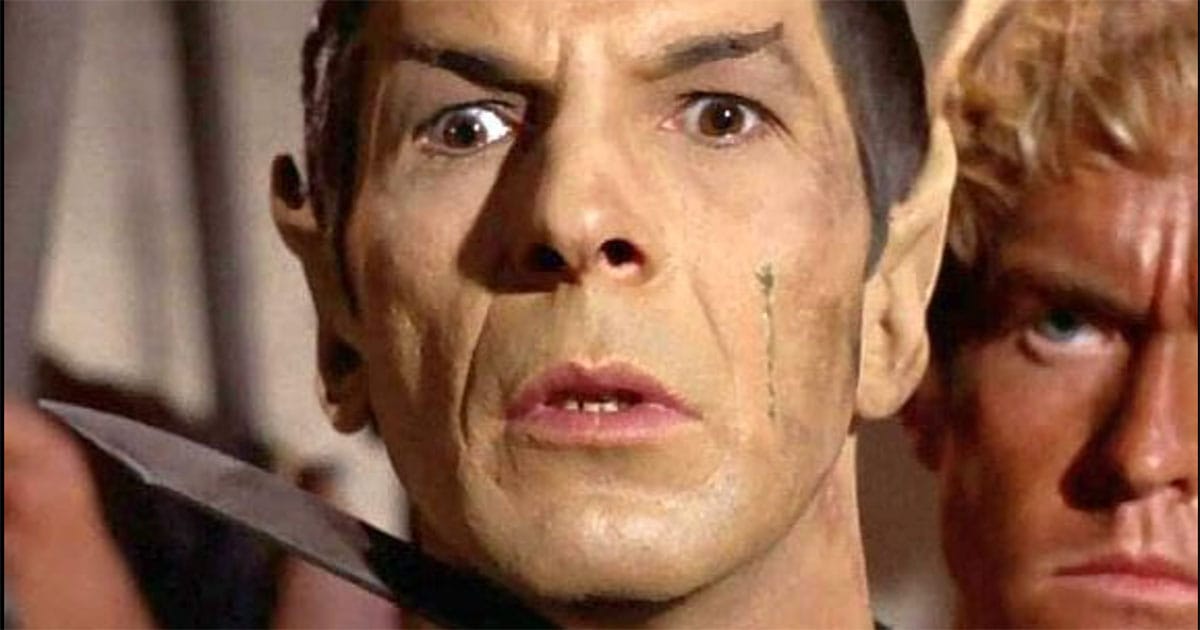
In spite of this high ideal, Kirk frequently took a pragmatic approach. On multiple occasions, he intervened in alien societies when he felt it was the morally proper course, especially if another power had already corrupted that society's natural path. For example, in "A Private Little War," Kirk discovers Klingons arming one faction of a primitive planet, so he responds by secretly arming the other faction to restore balance.
In "Return of the Archons," he destroys a computer that was controlling an entire culture, rationalizing that the Prime Directive "refers to a living, growing culture" and not a stagnant one under artificial tyranny.
Similarly, in "The Apple," Kirk decides to eliminate a god-like machine (Vaal) that keeps a native people in a primitive state, despite Spock's warning that this would "violate the non-interference directive".
These actions technically break the Prime Directive, but Kirk justifies them as correcting prior interference or freeing a society to develop naturally.
Indeed, the original series often portrays the Prime Directive as an ideal that is difficult to uphold in its entirety. The crew's adventures highlight the tension between Starfleet's non-interference rules and the captain's conscience.
Kirk and others exhibit a relatively laissez-faire attitude toward the Prime Directive when lives or fundamental freedoms are at stake. Notably, Starfleet Command tolerates these violations when they serve a greater good, and Kirk is rarely punished for breaking the Prime Directive, provided he can justify his actions.
Episodes like "Patterns of Force" (where Kirk stops a Federation observer who imposed a Nazi-style regime on a planet) underscore why the Prime Directive exists, even as the solution required intervention to undo a prior violation. Overall, in the 23rd-century Kirk era, the Prime Directive is recognized as supremely important. Still, enforcement is inconsistent. Starfleet captains sometimes bend the rule to resolve dire situations, reflecting the show's exploration of complex moral choices.
The Next Generation (TNG)
Set in the 24th century, "Star Trek: The Next Generation" depicts a Starfleet that holds the Prime Directive as inviolable in principle. Yet, Captain Jean-Luc Picard and his crew still encounter scenarios that test this law.
Picard often describes the Prime Directive not just as a set of rules, but as a well-founded philosophy. In one episode, he notes that history has proven that whenever humanity interferes in a less developed civilization, even with good intentions, the results are "invariably disastrous."
This reflects the Federation's evolved, cautious approach. By Picard's time, Starfleet is very reluctant to expose or meddle with pre-warp societies.
Nevertheless, TNG provides many examples of how rigid adherence to the Prime Directive can conflict with humanitarian impulses.
In "Who Watches the Watchers," a Federation observation team is hidden on a primitive planet but is accidentally revealed, causing the locals to believe the Starfleet people are gods.
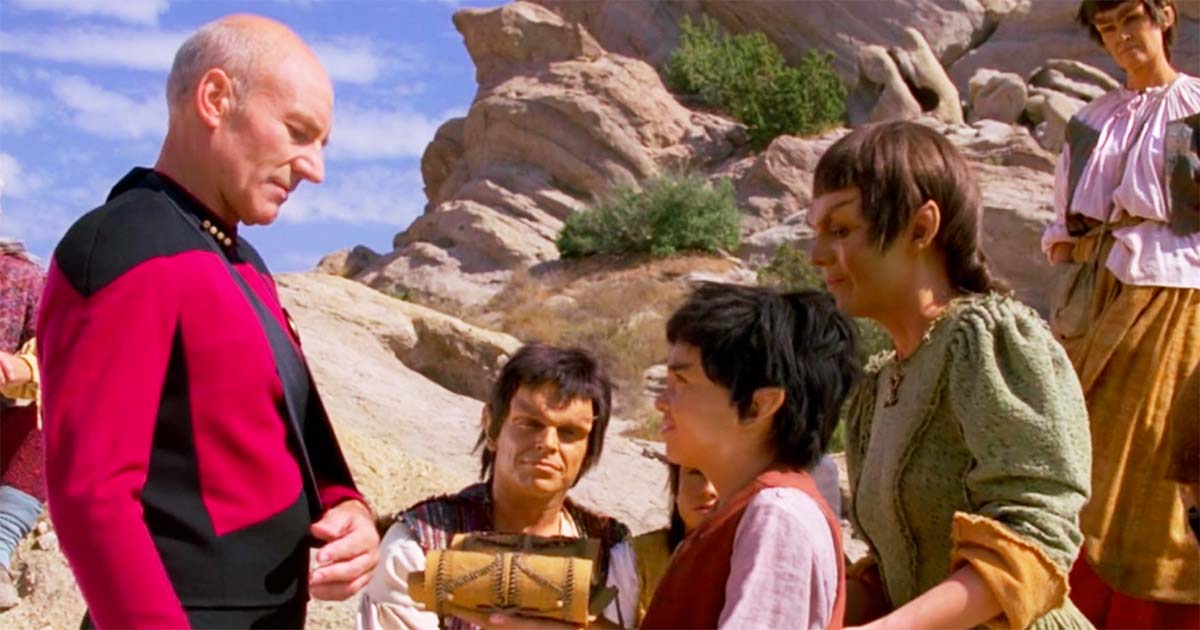
Picard faces a dilemma. The Prime Directive would dictate minimal interference, yet doing nothing would leave the society in spiritual upheaval. He chooses to break the rule gently, if you will. He brings a local aboard the Enterprise and explains the truth, even letting himself be shot with an arrow to prove he isn't divine. This carefully managed interference aims to mitigate the damage caused by the initial accidental contact while respecting the spirit of the law.
In the episode "Pen Pals," Data secretly communicates with a child on a disaster-struck pre-warp planet, forcing the crew to debate whether to help save her people or let nature run its course. Starfleet protocol had allowed whole civilizations to perish rather than intervene in their "natural fate," a fact that Picard grimly acknowledges. At one point, it is stated that Starfleet had allowed some 60 races to go extinct in order to obey the Prime Directive.
Ultimately, Picard decides to rescue Data's young friend, arguing for compassion after much soul-searching and a vote among his officers.
Conversely, in "Homeward," another TNG story, a crew member defies orders to save a village from a planet's destruction by relocating them in secret —an act Picard initially condemns as a clear violation.
These stories show TNG's nuanced exploration. The crew wants to uphold non-interference, but they struggle when the cost is innocent lives.
Picard himself has a strong personal commitment to the Prime Directive but is not infallible. In the first-season episode "Symbiosis," he withholds a technologically advanced cure from a planet plagued by drug addiction, even though it could have saved lives, because providing it would interfere with the natural resolution of their societal problem.
He explains to a confused crew member that the Prime Directive "is not just a set of rules; it is a philosophy…and a correct one", born from hard lessons of history.
Yet, Picard has broken the Prime Directive on occasion when he felt it necessary. A retired admiral once tallied that Picard had violated the Directive nine times during his command, to which Picard replied that each instance was documented, implying he judged those actions to be justified.
For example, in "Who Watches the Watchers" (mentioned above) or in "First Contact," where he reveals the Federation's existence to a planet on the brink of warp capability to resolve a crisis, Picard weighs the Prime Directive against immediate ethical duties.
The Next Generation era thus treats the Prime Directive as a cornerstone of Starfleet ethics, rigorously taught and usually obeyed, but still subject to a captain's conscience. The rule is honored in spirit, protecting less advanced worlds even when the letter is bent to prevent greater harm.
Deep Space Nine (DS9)
"Star Trek: Deep Space Nine" is set in parallel to TNG in the 24th century, but its stationary setting —a space station above Bajor— and wartime storylines offer a different context for the Prime Directive.
Commander (later Captain) Benjamin Sisko and his crew are less often confronted with pre-warp civilizations, since DS9 focuses on political and military conflicts. Even so, the principle of non-interference still applies, often regarding involvement in the internal affairs of other societies.
Early in the series, Sisko cites the Prime Directive when deciding not to interfere with an alien visitor's life-or-death ritual hunt. In "Captive Pursuit," a Gamma Quadrant alien named Tosk is being hunted for sport. Sisko initially refuses to intervene, stating that Starfleet cannot impose its moral judgment on the aliens' cultural practices. He ultimately permits his chief, O'Brien, to covertly help Tosk escape, subtly bending the rule to show mercy. This choice reflects Sisko's tendency to quietly push the boundaries of non-interference when he feels it's right, without making a diplomatic incident.
DS9 also addresses the Federation's stance of non-intervention in the conflicts of sovereign worlds.
In the three-part story "The Circle", Bajor undergoes a civil upheaval. Starfleet orders Sisko to evacuate Federation personnel and refrain from getting involved, noting that unlike other powers (such as the Cardassians), "we don't involve ourselves in other people's civil wars."
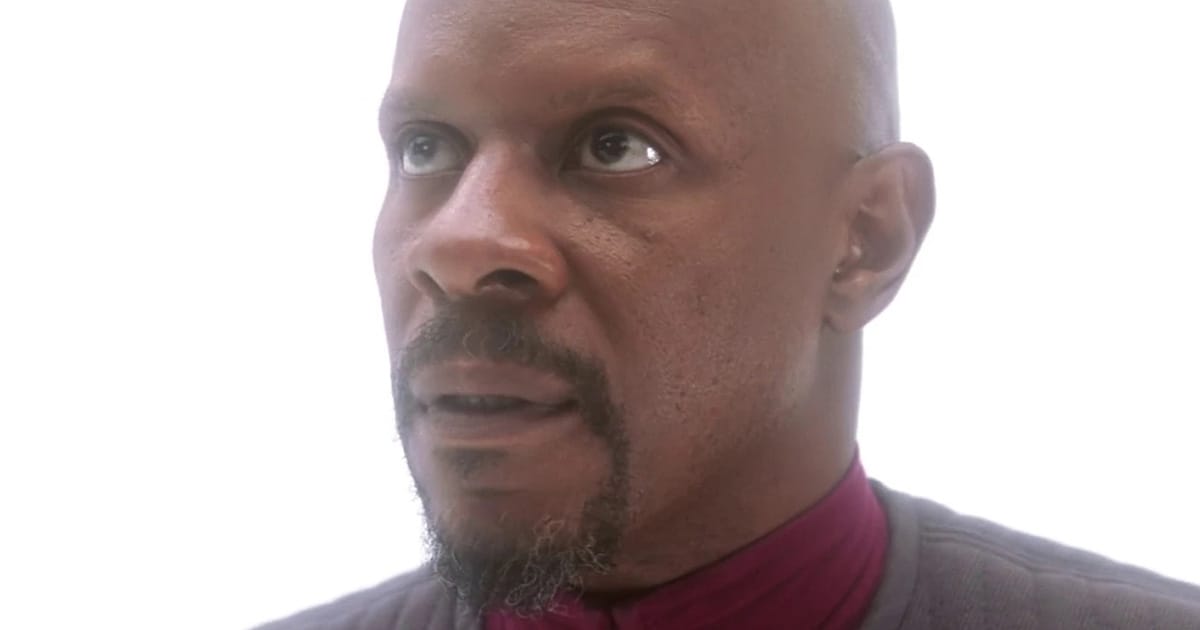
Here, the Prime Directive's philosophy extends to not taking sides in another government's internal strife, even for a Federation-friendly planet like Bajor. Sisko chafes at this, but he complies until evidence emerges of external meddling (which then justifies limited intervention).
Perhaps the most dramatic challenge to Federation principles comes in "In the Pale Moonlight," during the Dominion War. Facing possible defeat, Sisko works with Garak to trick the Romulan Empire into joining the war on the Federation's side —they fabricate evidence and assassinate a Romulan senator to spark a conflict, which is a severe ethical breach.
While not a traditional Prime Directive scenario (since the Romulans are a major power, not a primitive culture), it violates the spirit of not manipulating other societies. Sisko records in his log that he has compromised his morals for the sake of victory, highlighting that even Federation ideals, such as non-interference, can be cast aside in extreme circumstances.
In summary, "Deep Space Nine" portrays the Prime Directive less as a day-to-day protocol and more as a broader ethical guideline for respecting the autonomy of other cultures.
Sisko generally upholds it when dealing with unfamiliar species or volatile political situations, but he —like his Starfleet peers— will breach those principles covertly if truly necessary.
Voyager
On "Star Trek: Voyager," which is set in the 2370s, Captain Kathryn Janeway is stranded with her crew in the distant Delta Quadrant, far from Federation support.
In spite of their isolation, Janeway remains firmly committed to the Prime Directive as a touchstone of Federation values in uncharted space. Time and again, the Voyager crew encounters alien civilizations much less advanced than their own, and Janeway strives not to let desperation for a quick way home compromise their ethics.
As an example, in the early episode "Prime Factors," Voyager refuses to trade for technology that could vastly shorten their journey because doing so would violate the other society's law akin to a Prime Directive (they won't share their tech with less advanced peoples) —a frustrating decision that underscores Janeway's respect for non-interference even at a personal cost.
"Voyager" also explores unique wrinkles of Starfleet's rules. One notable addition is the Omega Directive, introduced in the episode "The Omega Directive." This secret protocol states that if unstable Omega molecules (a volatile form of super-energy) are detected, a captain is authorized to suspend the Prime Directive and take any necessary action to destroy the Omega particles.
Janeway invokes this directive to justify doing whatever it takes to neutralize the threat, illustrating that even Starfleet recognizes scenarios where protecting the galaxy takes precedence over standard rules and regulations.
Apart from such exceptions, Janeway generally adheres to the Prime Directive.
In "Natural Law," for example, two Voyager officers accidentally crash through an energy barrier into a sanctuary for a primitive society. They attempt to minimize cultural contamination by avoiding the introduction of advanced tools and quickly removing any technology they have brought in.
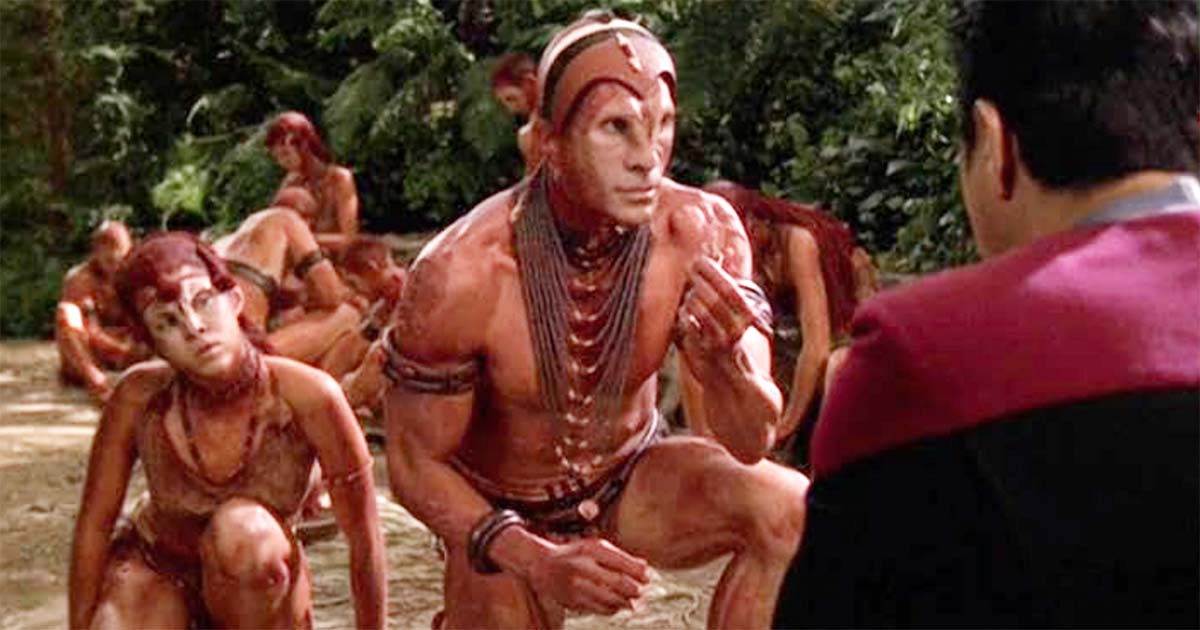
When Voyager's crew learns that a more advanced culture on the planet wants to exploit the situation and "civilize" the primitives, Janeway intervenes to restore the status quo by taking down the barrier only to evacuate Voyager's people and debris, then reactivates it to keep the pre-warp society isolated and protected.
Janeway cites the Prime Directive to justify preventing the well-intentioned but disruptive contact between the two native cultures. This scenario shows Janeway using the Directive proactively to defend a less-developed group's way of life, even against another advanced society.
Still, "Voyager" demonstrates that the Prime Directive is not inflexible dogma. In the series finale "Endgame," a future Admiral Janeway time-travels and pointedly tells her younger self not to let rules like the Prime Directive hinder an opportunity to get the crew home sooner. This suggests that Janeway (in her older age) came to believe that sometimes bending the Prime Directive is necessary to serve a greater good. In this case, saving lives and decades of hardship.
Throughout "Voyager," Janeway does face such tough calls. On occasion she chooses the lesser of two evils, as when confronted with advanced but morally questionable societies, or when deciding whether to interfere in disasters.
Importantly, even far from Federation oversight, Janeway's crew largely police themselves to uphold Starfleet's non-interference ideals. Their experiences reinforce that the Prime Directive's core purpose —preventing harm while exploring "strange new worlds" — remains relevant and challenging, regardless of the quadrant.
Enterprise
"Star Trek: Enterprise" is a prequel series set in the 2150s, before the United Federation of Planets is formed and before the Prime Directive exists.
Consequently, Captain Jonathan Archer and the crew of Earth's first deep-space starship (Enterprise NX-01) operate without a formal Prime Directive, learning by trial and error what responsible exploration entails.
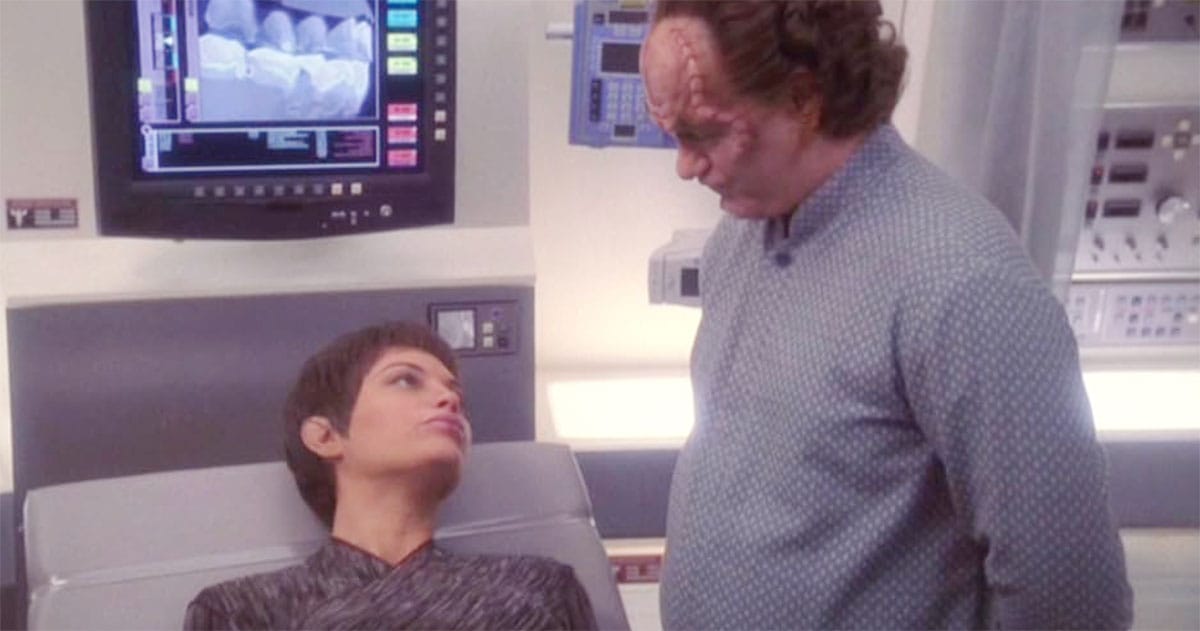
Many episodes foreshadow the eventual creation of General Order 1. In "Dear Doctor," Dr. Phlox discovers a cure for a disease wiping out a pre-warp alien race, but he and Archer agonize over whether saving that species might doom another that would eventually evolve and thrive on the planet.
Archer ultimately withholds the cure, concluding that humanity isn't advanced enough to decide another civilization's fate, and he muses that someday they'll need guidelines to handle such situations. This moment is often seen as an early conceptual birth of the Prime Directive's ethos.
Throughout "Enterprise," Archer frequently confronts dilemmas about interference. At first, his human instinct is to help or intervene whenever he sees injustice or suffering, but he gradually becomes more cautious.
The Vulcans (Earth's mentor species) repeatedly advise him not to meddle in other worlds' affairs. Vulcans have their own longstanding non-interference policy that clearly inspires what will later become Starfleet's Prime Directive.
Episodes like "Fight or Flight" and "Civilization" showcase Archer grappling with whether to reveal himself to alien cultures or become entangled in local conflicts.
In "Civilization," for instance, Archer initially tries to secretly help a pre-industrial society suffering from pollution caused by another visiting alien; he goes in disguise and attempts a limited intervention, reflecting a learning process in how to explore responsibly.
Not all lessons come easily. In "Cogenitor," an officer's well-meaning interference in an alien species' social customs (encouraging an oppressed individual to seek freedom) leads to tragic consequences, driving home to Archer the potential harm of imposing human values.
By the end of the series, Archer openly supports drafting a Prime Directive. He delivers a speech noting that until such a rule is in place, he'll have to rely on his conscience, but he clearly looks forward to having a formal directive to follow.
"Enterprise" thus portrays the formative years of Starfleet's ethical code, with Archer's experiences (and mistakes) laying the groundwork for the non-interference principle that later captains swear by.
Discovery
"Star Trek: Discovery" begins in the same era as TOS (the mid-23rd century, prior to Captain Kirk) and later leaps into the 32nd century.
In the 23rd-century setting (Seasons 1 and 2), the Prime Directive is referenced as General Order 1, since the term "Prime Directive" hadn't officially taken hold yet.
The show's pilot episode exemplifies strict observance. Captain Philippa Georgiou and her first officer, Michael Burnham, secretly assist a pre-warp species suffering from a drought, all without revealing their identities or technology.
They divert a hydrographic disaster on the alien planet and depart unseen, essentially a textbook execution of the Prime Directive (even if it's not yet named so), demonstrating compassion within the bounds of non-interference.
Georgiou's discretion in this mission is noted as exemplary, implying she upheld General Order 1 more rigorously than many captains do.
However, "Discovery" also shows that even in the 2250s, Starfleet captains sometimes choose to violate General Order 1 when extraordinary circumstances demand it.
In the Season 2 episode "New Eden," Captain Christopher Pike leads an away team to a remote human colony that originated from Earth but has lost all advanced technology.
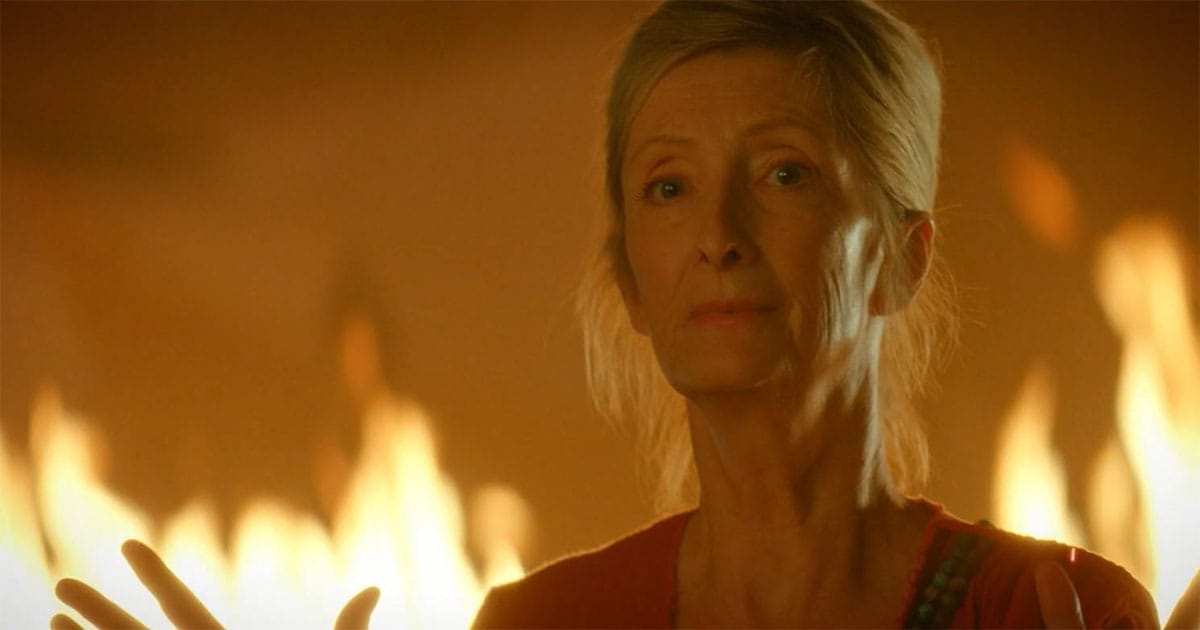
The team initially takes pains to blend in and avoid contaminating the culture. When Pike discovers a piece of 21st-century Earth tech (a helmet camera from World War III) that could help solve a current mystery, he faces a dilemma: retrieving it means exposing at least one local to knowledge of the broader universe.
Commander Burnham argues that they cannot both preserve General Order 1 and get the answers they need. Pike ultimately decides to break the Prime Directive in a limited fashion. He reveals the truth to a single colonist in exchange for the camera, trusting the man to keep the secret.
This calculated breach is portrayed as a captain's judgment call. Pike deems preventing a potential catastrophe (and correcting a past Starfleet mistake that led to this colony's predicament) more important than absolute non-interference. He later faces Starfleet's scrutiny for this action, but an Admiral notes that bureaucratic technicalities and the classified nature of the original incident spared Pike from punishment.
By the end of that episode, it's even mentioned that the Federation Council is considering officially renaming General Order 1 to "the Prime Directive" as a nod to this principle's enduring significance.
In "Discovery's" far-future storyline (after the crew jumps to the 32nd century), the Prime Directive still exists (alongside an evolved Federation), though specific examples in the show are fewer.
One instance from a later season illustrates that the core moral question remains unchanged. Captain Michael Burnham, now in command, encounters a pre-warp society on the brink of extinction due to a failing piece of advanced technology that outsiders had secretly installed to aid them.
Burnham initially tries to fix the problem covertly, but when the locals endanger her crewmate's life, she makes a choice to openly violate the Prime Directive to save her friend and ensure the society's survival.
She argues that watching people die in front of her, especially without learning how to save themselves, serves no one, and that compassion must outweigh protocol in this case. This decision echoes the classic Starfleet conundrum. The captain shoulders the responsibility for breaking the highest rule, believing that doing so is "the right thing to do," as Picard once described.
Overall, "Star Trek: Discovery" reaffirms that whether in the 23rd or 32nd century, the Prime Directive is a cornerstone of Starfleet policy.
The series' characters honor it by default (as seen with Georgiou), yet they remain willing to bend or even break it under extraordinary conditions.
The show also winks at Trek lore by depicting the formal christening of the term "Prime Directive" during Pike's era, emphasizing that this principle is here to stay, no matter the time period.
Picard
"Star Trek: Picard," set in the late 24th and early 25th century (decades after TNG), focuses more on internal Federation politics and personal journeys than on exploratory missions, so the Prime Directive is less frequently a plot point.
Nevertheless, it's clear that the Prime Directive is still very much in force as a core Starfleet principle. Jean-Luc Picard, now a retired admiral, remains a staunch believer in Starfleet's values, including non-interference.
The series does provide a concrete example of the Prime Directive's continuing applicability.
In Season 3, Geordi La Forge mentions that Starfleet quietly raised the wrecked saucer of the "USS Enterprise-D" from a planet's surface to avoid violating the Prime Directive. (The starship had crashed on Veridian III in the film "Star Trek: Generations;" since that star system had a pre-warp civilization, leaving Federation technology in plain sight would contaminate the locals' development.)
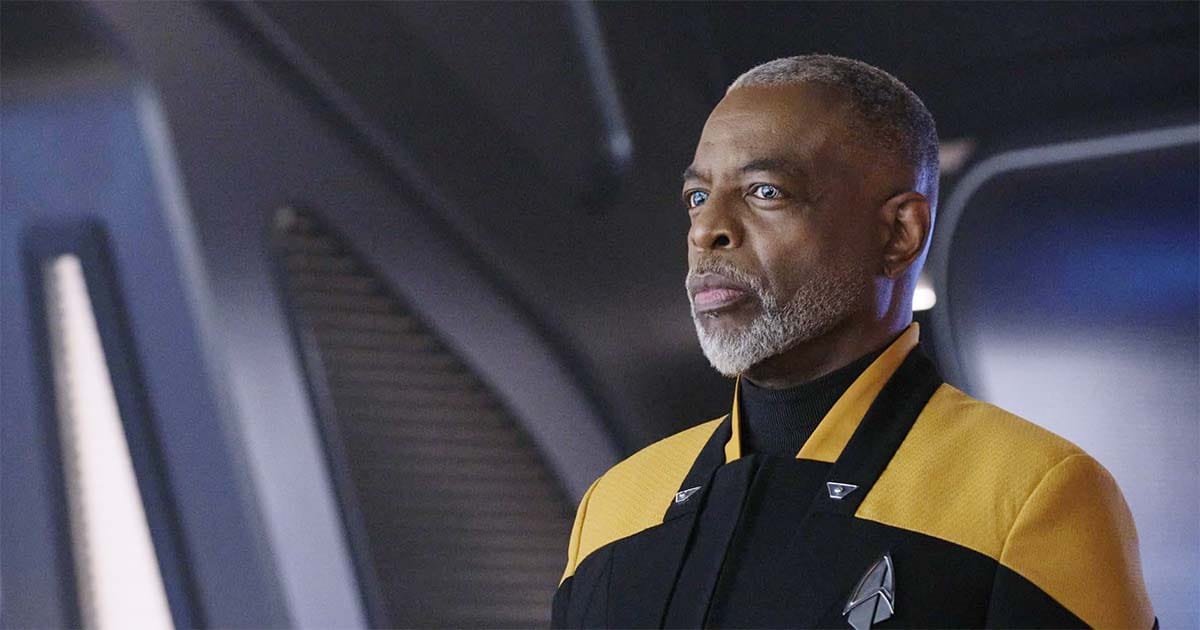
This detail highlights how, even in peacetime operations, Starfleet goes to great lengths to prevent cultural contamination—a direct outcome of Prime Directive thinking.
Beyond that anecdote, "Picard" shows the Federation grappling with moral decisions that, although not classic Prime Directive scenarios, still echo the spirit of the Prime Directive.
For example, the debate over whether to aid the Romulans during a supernova crisis (a backstory element in the series) is about intervention in another society's fate, albeit a technologically advanced one.
Picard strongly advocates for helping the Romulan people evacuate, which aligns with humanitarian values rather than non-interference per se. When Starfleet withdraws this aid (due to political pressure following a synth attack), Picard views it as a betrayal of Federation principles. Although not explicitly framed as a Prime Directive issue, it underscores his ethos that doing the right thing should guide Starfleet's actions.
In essence, the "Picard" series upholds that Starfleet's first rule still morally binds its officers. Even in a storyline focused on androids, secret agencies, and galactic diplomacy, the ingrained habit of respecting other cultures' natural development is part of the background fabric.
The Prime Directive endures into the 25th century as an accepted norm, one that Starfleet veterans like Picard invoke when relevant to ensure the Federation does not repeat the mistakes of the past.
Strange New Worlds (SNW)
"Star Trek: Strange New Worlds," which is set in the 2250s, revisits the classic exploration style of the original series and explicitly deals with the early days of the Prime Directive (still referred to as General Order 1 for much of the show).
Captain Christopher Pike is depicted as a principled but compassionate leader who grapples with General Order 1 on several missions.
In the very first episode, "Strange New Worlds", Pike faces a dire situation on planet Kiley 279. This pre-warp society has accidentally developed a weapon of mass destruction by reverse-engineering technology they observed during a Federation battle (an event from "Discovery").
General Order 1 forbids contact, but Pike realizes Starfleet's own actions indirectly led to this crisis. He chooses to intervene openly. He decloaks the Enterprise in the planet's sky and makes a dramatic plea to Kiley's leaders, using Earth's historical cautions (like parallels to our 21st-century conflicts) to persuade them towards peace.
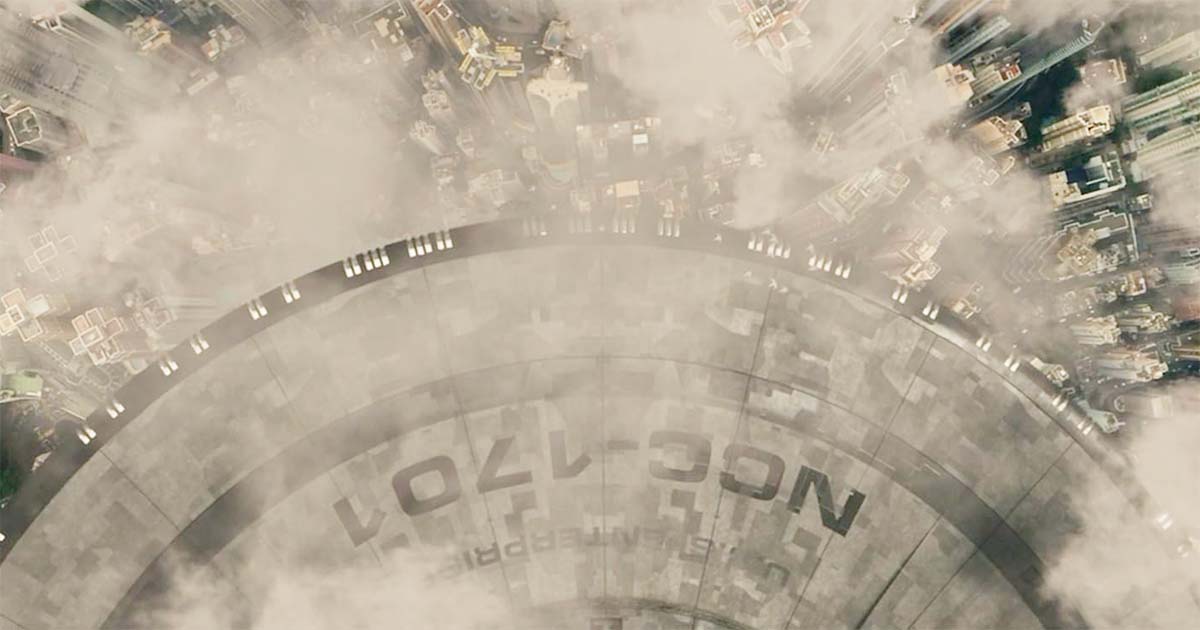
This flagrant breach of the Prime Directive pays off. The society steps back from the brink of war and redirects its efforts towards unity and space exploration. Afterwards, Pike's superior Admiral April manages to defend his actions to Starfleet Command, noting the unique circumstances. April also reveals that the term "Prime Directive" is about to be formally adopted as the new name for General Order 1. (Pike quips that the name will "never stick," an ironic joke since we know it certainly does.)
This episode thus shows SNW's era as the point at which the Prime Directive becomes codified in Starfleet vocabulary, thanks in part to lessons learned on missions like this.
Later in the series, we see Pike trying to carefully adhere to the Prime Directive while also interpreting it with a measure of common sense.
In "Among the Lotus Eaters," the Enterprise returns to a planet (Rigel VII) where, years earlier, some of Pike's crew were accidentally left behind.
The local civilization's development has since been distorted by strange radiation causing memory loss. Pike argues that removing a dangerous radioactive asteroid (the source of the memory-wiping effects) is not violating the Prime Directive but rather "setting things right," because the radiation is an unnatural impediment to the culture's normal growth.
Spock initially protests that any interference might break General Order 1, but he concedes to Pike's logic that they are restoring natural conditions, not imposing foreign ideas. This nuanced debate exemplifies how even in the 23rd century's early Starfleet, captains could interpret the Prime Directive's gray areas, distinguishing between curing a harmful anomaly versus meddling in social norms.
SNW also touches on the personal weight of the Prime Directive. Pike is keenly aware of the moral responsibility it entails, but he is willing to take calculated risks when he believes Starfleet itself caused harm or when an action can prevent greater tragedies.
The show, being a modern prequel, deliberately echoes original series themes while aligning with contemporary sensibilities: it acknowledges the Prime Directive as foundational, yet shows that empathy and sound judgment remain crucial in its application.
Key Incidents and Interpretations
Across the "Star Trek" franchise, the Prime Directive serves as a narrative lens for examining ethical decision-making within the universe.
Each series and film offers its own spin on how strictly the rule is followed and what happens when it's bent or broken. A consistent theme is that Starfleet captains value the Prime Directive highly, but not unconditionally.
Historically, Starfleet has seldom punished captains for violating General Order 1 if their actions could be justified as morally necessary. This practical flexibility suggests that the Prime Directive, while a vital ideal, is ultimately a guideline that can yield under exceptional circumstances.
Characters like Kirk, Picard, Sisko, Janeway, and others have all struggled with it, often remarking that there is no easy answer; sometimes, upholding the law means allowing a catastrophe to unfold, while breaking it could save lives or right a great wrong.
The franchise also presents external critiques of the Prime Directive through its storytelling.
Some episodes depict the Directive's strict enforcement as potentially cold or controversial. For instance, should Starfleet really stand by as an entire civilization is doomed by a natural disaster? TNG and Voyager repeatedly pose this question, generating thoughtful debate among the crew (and the audience).
On the other hand, Star Trek's writers have used Prime Directive dilemmas to criticize colonialism and hubris, showing that imposing one's own solutions on another culture, however well-intentioned, can lead to unintended suffering.
The rule embodies a lesson in humility and respect for other ways of life. As one analysis noted, if Starfleet's mission is to share the galaxy peacefully, it requires a kind of mutual respect and recognition that each society has the right to grow at its own pace. In-universe, the Directive has its detractors (some officers call it overly idealistic or cite inconsistent application), but it remains official Federation policy throughout the known future.
Even in the cinematic stories, the Prime Directive features prominently. In the film "Star Trek: Insurrection" (1998), Captain Picard defies an Admiral's secret plan to relocate a small, idyllic civilization (the Ba'ku) against their will. Picard argues that forcibly displacing the Ba'ku for Federation gain violates the very spirit of the Prime Directive, which is meant to protect cultures from exploitation. He ultimately leads his crew to side with the Ba'ku, essentially rebelling against Starfleet orders in order to uphold the principle of non-interference.
Conversely, the alternate-universe film "Star Trek Into Darkness" (2013) opens with a young Captain Kirk blatantly breaking the Prime Directive as he saves his first officer from a volcanic death and prevents a primitive people's extinction, but in doing so, he allows the USS Enterprise to be seen by the natives. As a result, the amazed locals begin worshipping the starship as a deity, precisely the kind of cultural contamination the Prime Directive is meant to prevent.
Starfleet disciplines Kirk for his impulsive choice, temporarily demoting him for placing his crew above the rules. These examples from the films reinforce how central the Prime Directive is to Starfleet's identity, even if individual leaders sometimes rebel, the ideal remains a cornerstone of Federation ethics.
In summary, the Prime Directive is one of "Star Trek's" most enduring concepts, representing the franchise's aspirational ethics in space exploration. Its portrayal has evolved from the 1960s to today, but whether in Kirk's time or Burnham's far future, the core question persists: when, if ever, is it right to break the highest rule?
By examining those difficult scenarios, "Star Trek" invites viewers to consider the balance between principled non-interference and moral responsibility. The various series illustrate that while technology and starships change, the challenge of the Prime Directive —weighing the value of cultural integrity against the value of compassion— is an ongoing story with no easy answers, ensuring the topic remains a rich source of drama and philosophy in the "Star Trek" universe.

